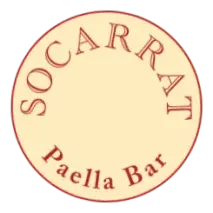
What exactly is the significance of Easter Monday? Easter Monday is the day after Easter Sunday and the last day of the Easter weekend before some Christians return to their regular work and life schedule. In this article, we will explore the importance of this day and why it is celebrated.
Easter, the Christian holiday commemorating Christ’s death and Resurrection, is observed in Christian communities worldwide. Other Easter traditions have emerged in different nations, ranging from egg painting to kite flying.
Easter Monday is the Christian holiday that follows Easter Sunday, commemorating the Resurrection of Jesus Christ from the tomb following his crucifixion. The Monday following Easter is also known as:
- Bright Monday
- Renewal Monday
- Wet Monday
- Dyngus Day
Even though the Bible does not mandate this holiday, many Christian communities, especially Roman Catholics and Eastern Orthodox, celebrate it as part of their cultural past. Before the working week begins, Easter Monday is the penultimate day of the holy week celebrations. Several countries worldwide celebrate the second day of Octave in Eastern Christianity and the second day of Eastertide in Western Christianity as official holidays.
What is Easter Monday?
The term ‘Easter Monday’ was initially recorded in the 15th century. The Monday after Easter, observed on Sundays, is a day of great religious significance for Christians. While many civilizations celebrate the day in different ways, all followers of Christ join together to honor the Messiah’s return to Earth differently.
This day is known as the “Monday of the Angel in the Catholic Church.” Jesus stayed on Earth for 40 days after his Crucifixion and Resurrection, appearing to believers, healing the sick, and spreading the Gospel. Jesus’ activities also influenced the formation of the church. It is thought that Jesus ascended to the heavens after the 40 days following his Resurrection.
Easter Monday is not a religious holiday in the strictest sense. To mark this day, several Christian groups hold outdoor processions and parades. Easter egg rolling events are organized and participated in by some people. Others observe Wet Monday by waking up their wives and siblings by pouring buckets of water on them. Easter Monday, the festival’s final day, is jam-packed with fun activities.
Is Easter Monday a Holiday?

Several Christian groups observe this day. It is, nonetheless, regarded primarily in Roman Catholic and Eastern Orthodox faiths. Easter Monday is the first day of Bright Week, the Eastern Orthodox equivalent of Easter Week and Easter Week for Roman Catholics. People send Easter Monday messages to friends and family members worldwide.
On the other hand, various cultures and civilizations are known to have different ways of celebrating Easter. Easter Monday is observed in certain cultures as a somber commemoration of Christ’s death and Resurrection, commemorated by a procession. Easter eggs and Easter bunnies are used in several cultures to mark the day. Spouses and siblings in certain cultures start their days by dumping buckets of water on their partners, hence the moniker ‘Wet Monday.’ A vast gathering and a polka festival can also celebrate a good Easter Monday.
What Does the Word Easter Mean?
The word “Easter” comes from the name of a pre-Christian English god. The Venerable Bede, a British monk who lived in the late seventh and early eighth centuries, is the only source of information about this. According to St. Venerable Bede, Eostre (the Anglo-Saxon goddess of spring and fertility) is the root of the English name “Easter.” According to another theory, Easter is derived from an ancient German phrase for east and an even older Latin term for dawn.
According to some historians, “Easter ” is derived from the Latin phrase alibis. This Latin term was interpreted as the plural of alba, “dawn”; thus, it became eostarum in Old High German, a forerunner of the English language.


